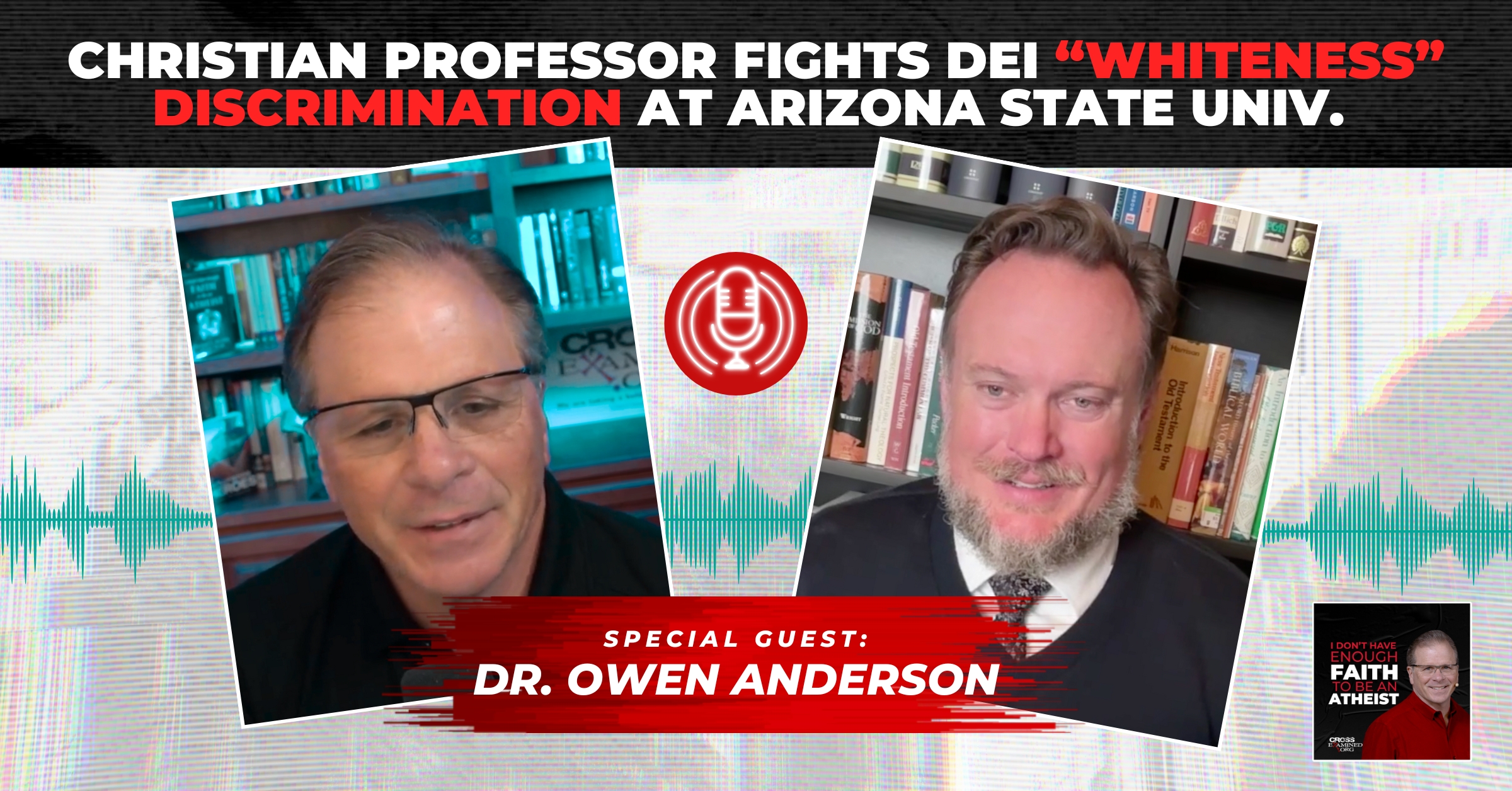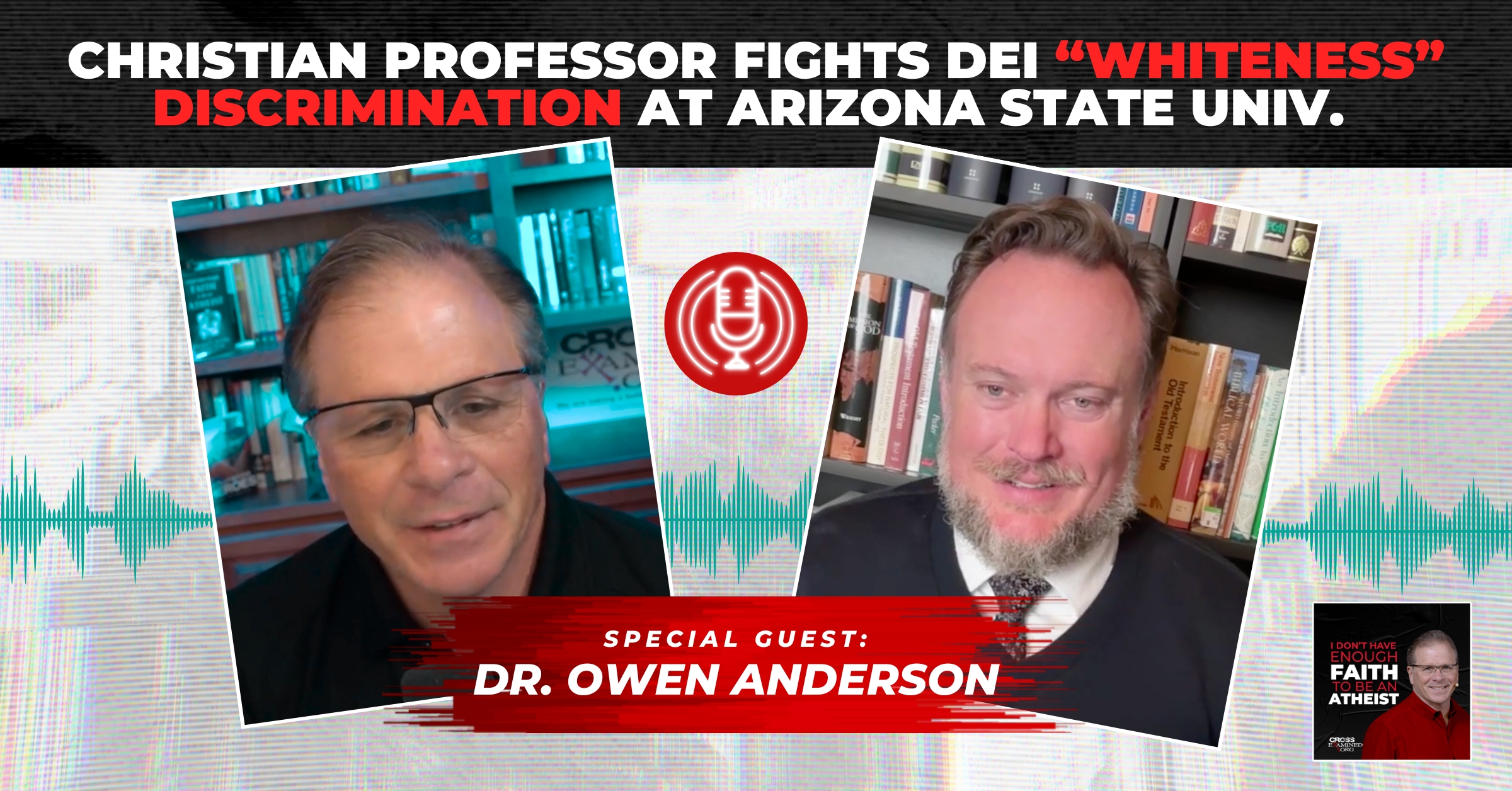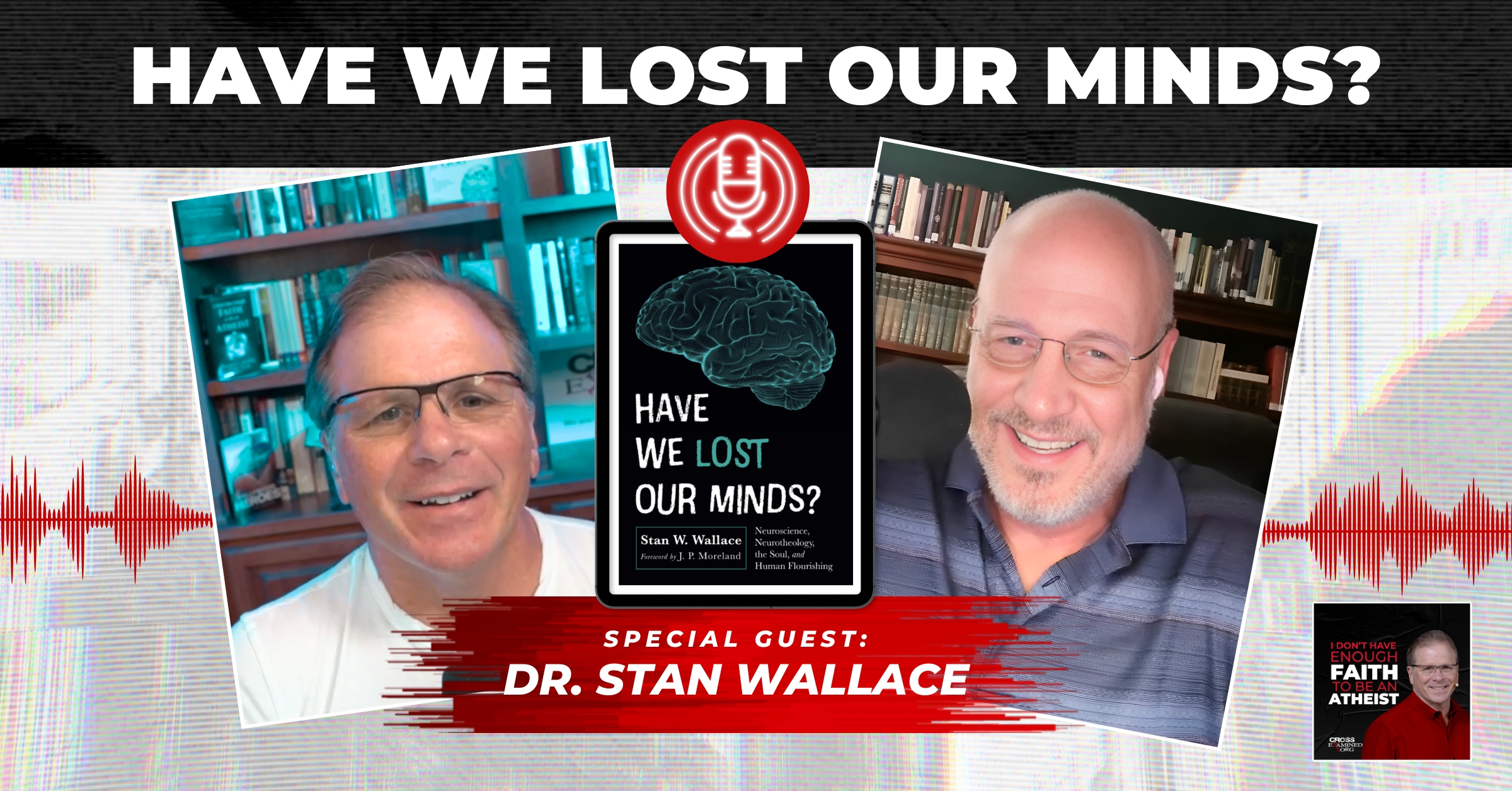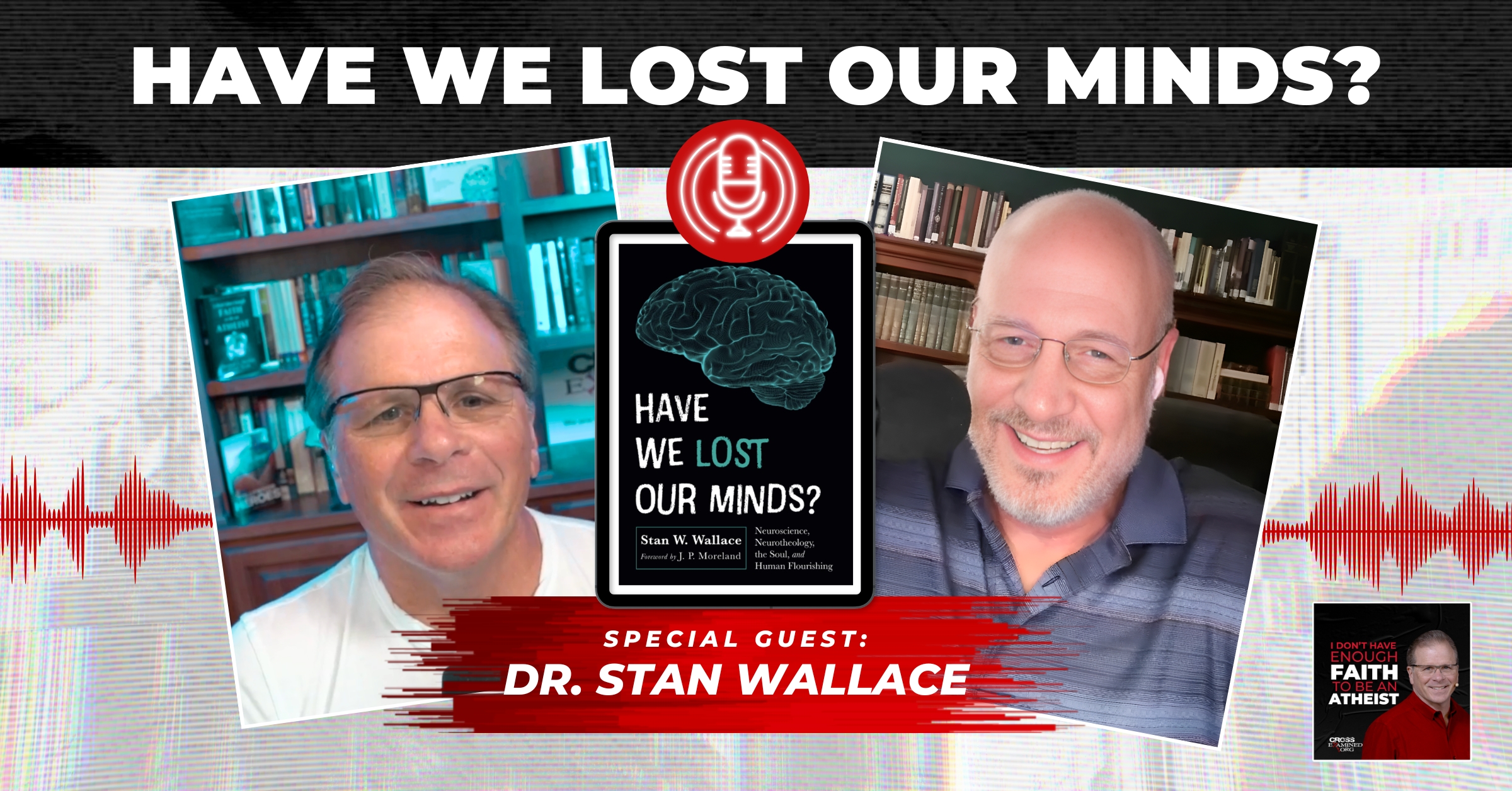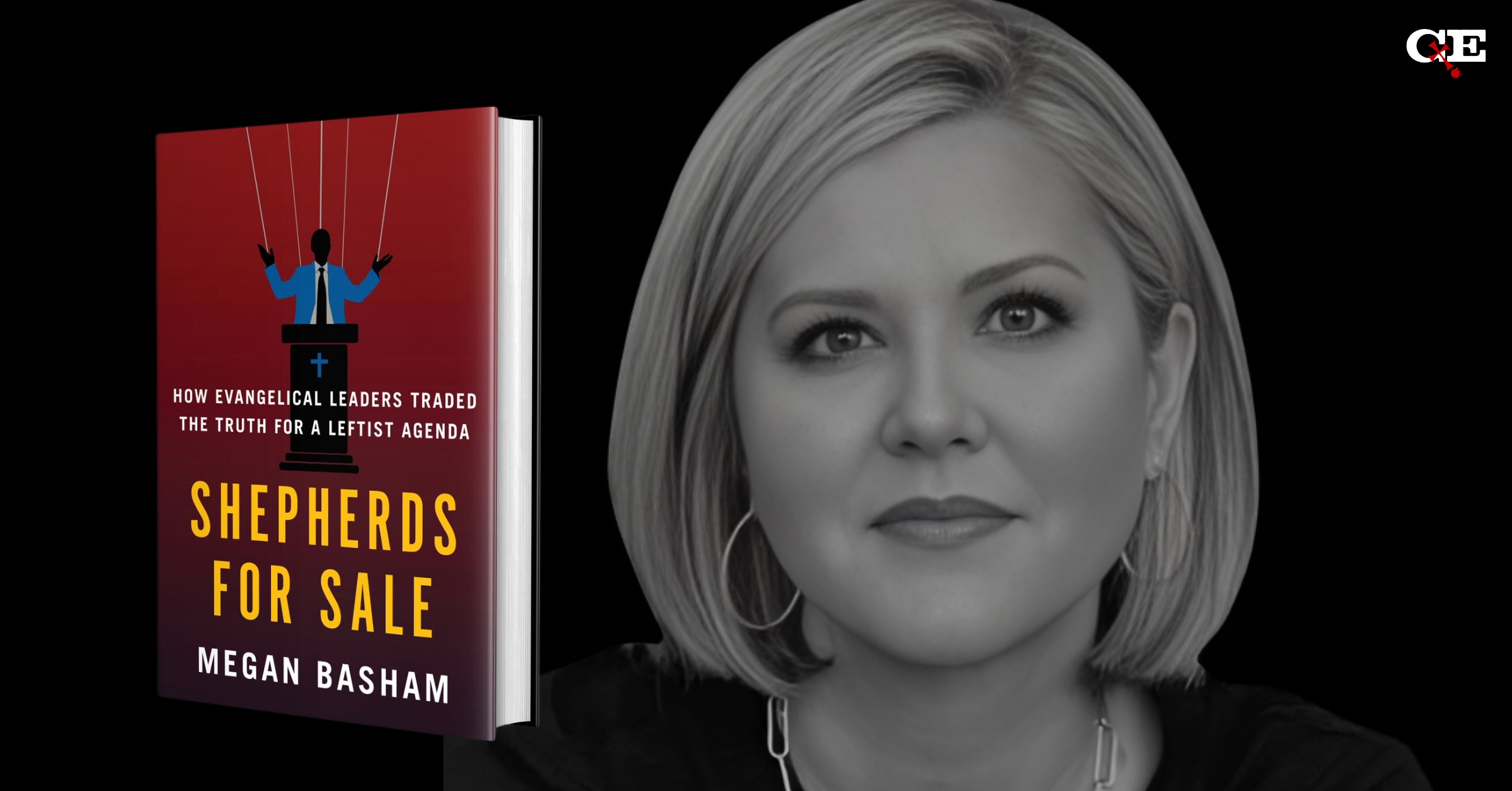A blogger I read regularly alerted me to Megan Basham’s new book Shepherds for Sale, subtitled How Evangelical Leaders Traded the Truth for a Leftist Agenda. It was released [at the] end of July. I was intrigued by the book because it claimed to be exposing compromise infecting many evangelical elites, especially among Southern Baptists. As it is, she is a Southern Baptist, and for over a decade I had moved in that world both at the more liberal Baylor University (the “largest Baptist university in the world”) and then at two of the main Southern Baptist seminaries (in Louisville and in Ft. Worth).

Baylor president Robert Sloan had hired me in 1999 to found and run an intelligent design think tank (the Michael Polanyi Center). The backlash from Baylor faculty was intense, and I was left for the five years on my contract to write and do research, but essentially as persona non grata, without even the option to teach (I was too controversial for any department to risk having me teach their courses). The biology department even had on its homepage a statement repudiating intelligent design and commending Darwinian evolutionary theory. If Basham’s book had been written about evangelicalism at Baylor, it would not be the “instant” New York Times bestseller it is now. Moderate Baptists, such as at Baylor, have a long history of accommodation with the prevailing spirit of the age.
In 2005 my contract with Baylor came to an end. My struggles at Baylor had gotten me some sympathy from conservatives in the Southern Baptist Convention, which had gained control of the seminaries. And so, in the fall of 2005, I started teaching at the Southern Baptist Theological Seminary in Louisville, and then subsequently at Southwestern Baptist Theological Seminary in Ft. Worth. Though for a time I was a “golden boy,” featured in the Baptist Press and with my likeness in seminary ads, I lasted only seven years at these seminaries. In the end, it wasn’t a good fit.
The final straw for me was a meeting in which the president, provost, and dean called me into the president’s office because I questioned historical aspects of Noah’s flood, questions I had raised in a book on theodicy (The End of Christianity: Finding a Good God in an Evil World). I had never hidden that I was not a young-earth creationist. In fact, I had made my old-earth position on creation clear in the job application process. But when I was called in for that meeting, the president informed me that my job was on the line (the historicity of Noah’s flood being a point of orthodoxy at the seminary even if the age of the earth was not). I was able to finesse things enough to keep my job (you can find the details in an interview I gave), but it left a bad taste in my mouth, and I knew it was time to move on.
I give this background not to stir up bad sentiments, whether in myself or the reader, but to indicate that the world that Megan Basham is writing about is one I knew intimately. As a non-Baptist outsider, I was especially alert to the power politics, the scolding and shaming, and the thirst for respectability about which she writes. That is her world as well. It is the one she mainly focuses on. In a sense, her book makes an a fortiori argument: if she can demonstrate woke compromise in the Southern Baptist Convention, the only major Protestant denomination that ever took itself out of the liberal death spiral that had compromised all the other mainline Protestant denominations, then her case is made for evangelicalism generally.
A word about terminology. Basham ostensibly focuses her attention on American evangelicalism as a whole rather than the specifically Southern Baptist form of it. American evangelicalism is a broad movement within Protestant Christianity characterized by a focus on the authority of Scripture, the importance of evangelism (i.e., sharing the Gospel), personal conversion, and a belief in the necessity of a personal relationship with Jesus Christ. In that sense, I am and remain an evangelical. Yet the term applies especially to any believing Southern Baptist, as can be confirmed by examining the Baptist Faith & Message 2000, to which Southern Baptists are expected to subscribe.
As a writer for the Daily Wire, Basham is not in the habit of mincing words. I found her tone a bit strident (though not overly). And yet, most of what she wrote rang true. I knew many of the personalities she described, whether directly or through mutual colleagues. Of the people I knew that she singled out for rebuke, I was not surprised about the charges she made. And of those whom she singled out as holding firm against woke encroachments, again they were people I would have expected to hold firm. There were a handful exceptions where Basham assigned someone to the class of compromiser where I thought she was likely being too harsh.
Basham is a journalist, and it’s clear that she did extensive research to write her book, reviewing many articles, posts, and videos as well as conducting numerous interviews. Her focus was on the hot-button cultural issues that animate our society’s more extreme progressives. With regard to climate change, illegal immigration, abortion, Covid-19 response, critical race theory, #MeToo, and LGBTQ, she details evangelical elites veering into a secular liberal agenda as they try to shift the thinking of the evangelical masses toward such an agenda or else keep them in the dark about the compromises they themselves are making.
You can read the book for yourself to determine whether she makes a compelling case for complicity and compromise among elite evangelicals. Interestingly, as I was looking on the web for reaction to her book, I punched into Google “Megan Basham Shepherds for Sale,” and the first item that came up was a 10,000-word response by former SBC president JD Greear (published three days ago, August 12).
Greear came in for extensive criticism in the book. Even though he took exception to Basham’s charges and replied to them in detail, he was respectful throughout and he did graciously underscore that there was validity to her efforts to hold church leaders like himself to account:
One of the things I appreciated about Basham’s book is that she pointed out the cultural pressure to appeal to elite progressives. That pressure exists in an educated, cosmopolitan place like RDU [where Greear’s Summit Church is located]. Nearly 70 percent of our community votes Democratic, and these are the people God has called us to reach. Since I am known as a political conservative, I do sometimes go to lengths to criticize my own political tribe because I don’t want there to be any encumbrances to the gospel. I need to heed the warning she offers and stand squarely on Scripture, saying exactly what it says, regardless of who it offends. That said, it is simply untrue that I don’t publicly criticize the Democratic party or critique the sins of the left. I’ve preached repeatedly on the sin of abortion, the sinfulness of homosexuality, and the destructiveness of gender confusion. Even just this year, I read from the Democratic platform in church and called it evil. The people of The Summit Church, who hear me week by week, know where I stand.
[Basham has posted a detailed reply to Greear at Clear Truth Media]
And that brings me to the point of this Substack post. As already noted, nothing that Basham described about evangelical elites succumbing to the temptations of power, prestige, money, and sex surprised me. And there’s a straightforward reason for my lack of surprise. Evangelicals, precisely because of their evangelical beliefs, occupy a second tier in our society, the first tier being occupied by the secular liberal elites that control the universities, the media, the levers of political power, and prime intellectual real estate such as the New York Times. It is a natural as well as potent temptation for the second tier to want recognition from the first tier.
The one surprise in my reading of Basham’s book was the pains to which the first tier has gone to seduce the second tier to serve its political ends. Evangelicals, for all their incongruence with elite secular high culture, constitute a political bloc that politicians must enlist to win elections and that progressive influencers consequently must subvert if their secular liberal agenda is to succeed. To have evangelicals publicly seen as a constant disrupter of their best laid plans would not wash. As with all ideologies that seek complete domination, woke progressivism finds it unacceptable to have a group, even a fringe group, serve as a witness against their goals and aspirations. And so, the biggest surprise for me in reading Shepherds for Sale was the extent to which explicitly non-Christian secular groups, especially philanthropies, target evangelicals, especially their elite leadership, with funds, training, and attention to get them to veer from the straight and narrow.
The Bible talks about bribes and how they subvert truth and justice. Yet the Hebrew word שַׁחַד (shachad) translated bribe also means gift, reward, or donation. That’s what philanthropic organizations are all about—giving gifts, rewards, and donations to advance their agendas. And as Basham rightly notes, the biggest philanthropic organization of all is the US government.
Not all philanthropic agendas need to be for bad ends. But all of them come with strings attached. They come with obligations to look here and not there, to wish for and achieve certain preferred outcomes, to serve a given cause rather than to let evidence and truth go where they will. Basham details how various secular liberal organizations have exploited the cultural inferiority of evangelicalism to move it away from its traditional positions on the hot-button issues of our age.
My point in this post is not to name evangelical elites who have compromised themselves or the secular philanthropies who have tempted them into compromise. You can get the details in Basham’s book. But here’s an example that Basham gives that’s emblematic of the temptations faced by elite evangelicals. It’s the case of an elite evangelical being invited to dinner at the Obama White House. I knew this individual 20 years ago early in his career. He has since had a meteoric rise in elite evangelical circles. In the introduction to a recent book that he wrote, he inserts a paragraph that seems out of place about his dinner at the Obama White House (confirming Basham’s account). No doubt, it must be personally gratifying to be invited to the White House. But ego aside, is that really something for an evangelical to be proud of given that the Obama presidency was so opposed to core evangelical beliefs and practices?
Let me put this point more starkly. The Scriptures teach repeatedly that we should guard against recognition, accolades, and advancement from those hostile to the faith and that in fact we are on much safer ground when those hostile to the faith persecute rather than praise us. This is not to say that we should purposely make ourselves so annoying or distasteful that we receive the reproach of unbelievers (as when Christians act as hypocrites). But it is to say that by quietly and consistently living out our faith, we will naturally attract opposition (consider the ongoing saga of the Denver baker Jack Phillips).
The New Testament makes this point so consistently, as illustrated in the following verses, that it is hard to dismiss it simply as proof texting:
- Matthew 5:10–12
“Blessed are those who are persecuted because of righteousness, for theirs is the kingdom of heaven. Blessed are you when people insult you, persecute you and falsely say all kinds of evil against you because of me. Rejoice and be glad, because great is your reward in heaven, for in the same way they persecuted the prophets who were before you.”
- Matthew 10:22
“You will be hated by everyone because of me, but the one who stands firm to the end will be saved.”
- Luke 6:22–23
“Blessed are you when people hate you, when they exclude you and insult you and reject your name as evil, because of the Son of Man. Rejoice in that day and leap for joy, because great is your reward in heaven. For that is how their ancestors treated the prophets.”
- John 15:18–20
“If the world hates you, keep in mind that it hated me first. If you belonged to the world, it would love you as its own. As it is, you do not belong to the world, but I have chosen you out of the world. That is why the world hates you. Remember what I told you: ‘A servant is not greater than his master.’ If they persecuted me, they will persecute you also. If they obeyed my teaching, they will obey yours also.”
- Acts 5:40–41
“They called the apostles in and had them flogged. Then they ordered them not to speak in the name of Jesus, and let them go. The apostles left the Sanhedrin, rejoicing because they had been counted worthy of suffering disgrace for the Name.”
- 2 Timothy 3:12
“In fact, everyone who wants to live a godly life in Christ Jesus will be persecuted.”
- 1 Peter 2:20b–21
“If you suffer for doing good and you endure it, this is commendable before God. To this you were called, because Christ suffered for you, leaving you an example, that you should follow in his steps.”
At the risk of overburdening the reader with still more Scripture verses, yet to leave no doubt about what the New Testament is teaching here, not only is opposition from unbelievers seen as something normal and to be expected (showing that Christians are doing something right) but support from unbelievers at the very least requires scrutiny and at worst can become a trap or pitfall:
- Luke 6:26
“Woe to you when everyone speaks well of you, for that is how their ancestors treated the false prophets.”
- John 5:44
“How can you believe since you accept glory from one another but do not seek the glory that comes from the only God?”
- John 12:42b–43
“Because of the Pharisees, [many] would not openly acknowledge their faith for fear they would be put out of the synagogue; for they loved human praise more than praise from God.”
- Galatians 1:10
“Am I now trying to win the approval of human beings, or of God? Or am I trying to please people? If I were still trying to please people, I would not be a servant of Christ.”
- James 4:4
“You adulterous people, don’t you know that friendship with the world means enmity against God? Therefore, anyone who chooses to be a friend of the world becomes an enemy of God.”
So the prime lesson I take from Basham’s book, and one I would like readers of this post to take with them also, is that we do well not to sell our Christian birthright for a mess of liberal or progressive pottage. We should be better than that and our Christian faith demands better than that.
Northwestern University professor Gary Morson wrote a recent piece for Commentary on Aleksandr Solzhenitsyn, the great Soviet dissident and Christian believer whose Gulag Archipelago more than any other book (it was actually three volumes) tore the veil off of Soviet oppression and totalitarianism in the 1970s. As Morson writes in “Solzhenitsyn Warned Us”:
For his part, Solzhenitsyn could hardly believe that Westerners would not want to hear all he had learned journeying through the depths of totalitarian hell. “Even in soporific Canada, which always lagged behind, a leading television commentator lectured me that I presumed to judge the experience of the world from the viewpoint of my limited Soviet and prison camp experience,” Solzhenitsyn recalled. “Indeed, how true! Life and death, imprisonment and hunger, the cultivation of the soul despite the captivity of the body: how very limited this is compared to the bright world of political parties, yesterday’s numbers on the stock exchange, amusements without end, and exotic foreign travel!”
The West “turned out to be not what we [dissidents] had hoped and expected; it was not living by the ‘right’ values nor was it headed in the ‘right’ direction.” America was no longer the land of the free but of the licentious. The totalitarianism from which Solzhenitsyn had escaped loomed as the West’s likely future. Having written a series of novels about how Russia succumbed to Communism, Solzhenitsyn smelled the same social and intellectual rot among us. He thought it his duty to warn us, but nobody listened. Today, his warnings seem prescient. We have continued to follow the path to disaster he mapped.
“Life and death, imprisonment and hunger, the cultivation of the soul despite the captivity of the body: how very limited this is compared to the bright world of political parties, yesterday’s numbers on the stock exchange, amusements without end, and exotic foreign travel!”
—Aleksandr Solzhenitsyn
If Basham is right, elite evangelical compromise is helping to pave the way to “the same social and intellectual rot” against which Solzhenitsyn warned us. The woke, the progressives, the left have made no secret of their agenda. I hope Shepherds for Sale is widely read if only for pointing out the complicity of elite evangelicalism in their agenda. Is Basham overstating the problem of elite evangelical compromise? Perhaps. But perhaps it needs to be overstated so that elite evangelicals wake up to the fact that the spotlight is on them and they can no longer dance to the tune of those who are implacably opposed to them ideologically, whose purpose is to use and discard them and in the end to completely undermine the Christian faith.
Solzhenitsyn was a serious thinker who could never be accused of compromise. He suffered too much. He paid too big a price. He could not be bought. He is a fitting role model for elite evangelicalism. He provides a proper coda for Basham’s book.
Recommended Resources:
Was Jesus Intolerant? by Frank Turek (DVD and Mp4)
Correct not Politically Correct: About Same-Sex Marriage and Transgenderism by Frank Turek (Book, MP4, )
Another Gospel? by Alisa Childers (book)
Legislating Morality: Is it Wise? Is it Legal? Is it Possible? by Frank Turek (Book, DVD, Mp3, Mp4, PowerPoint download, PowerPoint CD)
Bill Dembski holds octorates in math and philosophy as well as an advance theological degree. He’s published in the peer-reviewed math, engineering, biology, philosophy, and theology literature. His focus is on freedom, technology, and education. Formerly almost exclusively an ID (intelligent design) guy, with most of his writing focused on that topic, he found that even though ID had the better argument, it faced roadblocks designed to stop its success. So his focus shifted to the wider social and political forces that block free human inquiry. Bill still writes a lot on intelligent design but his focus these days is broader.
Originally posted at: https://bit.ly/3Xm9k49
